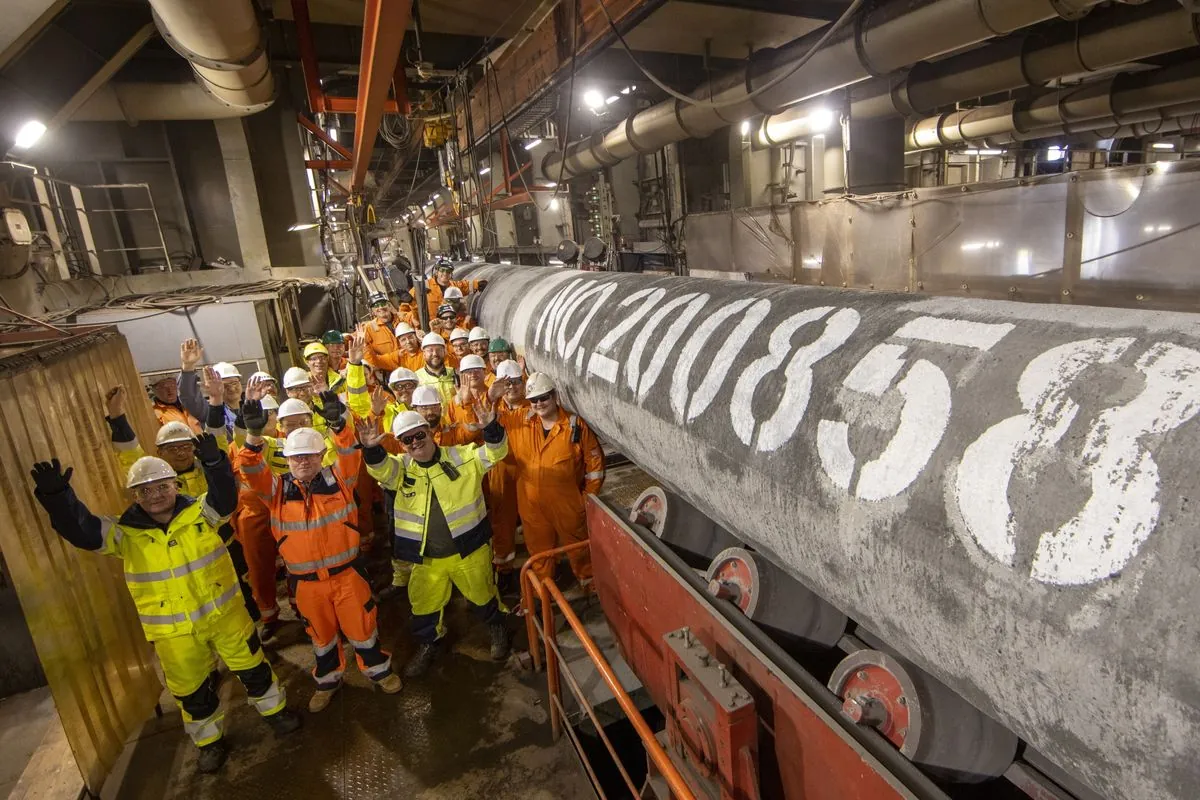Russia's use of energy as a geopolitical tool against Europe became undeniable in late 2021 and early 2022 when it restricted natural gas supplies to deter Germany and other European nations from supporting Ukraine. To prevent such tactics in the future, the United States is considering permanent sanctions on remaining Russian gas pipelines to Europe, starting with the extension of existing sanctions on Nord Stream 2.
The Nord Stream 2 pipeline, a 1,230-kilometer-long infrastructure capable of transporting 55 billion cubic meters of gas annually from Russia to Germany, has been a contentious project since its inception. Completed in September 2021 at a cost of approximately 9.5 billion euros, the pipeline runs parallel to the existing Nord Stream, crossing the Exclusive Economic Zones of five countries.
While Europe's energy imports from Russia have significantly decreased, attention has shifted to the reliability of U.S. support for Ukraine. Recent developments, however, suggest that the next major concern regarding support for Ukraine and Europe's resilience against Russia may be emanating from Berlin rather than Washington.
Germany's historical approach to Russia, characterized by concepts like "Neue Ostpolitik" and "Wandel durch Handel," aimed to foster stable relations and democratic reforms through increased commercial ties. However, unlike former Chancellor Willy Brandt's Cold War-era Ostpolitik, which balanced engagement with strong Western deterrence, recent German administrations allowed their defense capabilities to deteriorate.
Gerhard Schröder, Angela Merkel, and Olaf Scholz each contributed to Germany's Russia-friendly policies. Schröder signed a controversial energy deal with Russia shortly before leaving office in 2005, later taking positions with Kremlin-controlled energy companies. Merkel pursued the Nord Stream 2 project despite Russian aggression, admitting in mid-2022 that she never believed Putin would change through increased trade.
Olaf Scholz, who became chancellor in December 2021, initially resisted sending weapons to Ukraine but proclaimed a bold reorientation of German foreign policy - the "Zeitenwende" - after Russia's full-scale invasion. However, recent actions suggest a retreat from this stance, with Germany reducing military aid for Ukraine in its draft 2025 budget.
"We are living through a Zeitenwende. That means that the world afterwards will no longer be the same as the world before."
The United States can play a crucial role in preventing Germany from reverting to its previous Russia-friendly policies. In 2019, the U.S. Congress passed the Protecting Europe's Energy Security Act, imposing limited sanctions on Nord Stream 2. These sanctions are set to expire at the end of 2024 if not renewed.
While the Senate Armed Services Committee and Banking Committee have reportedly approved extending the sanctions, the Biden administration's stance remains uncertain. In late 2021, the administration waived sanctions on Nord Stream 2 in exchange for promises from Berlin to impose sanctions if Russia used energy as a weapon.
The era of Gazprom's dominance in Europe must end to ensure European peace and stability. Bipartisan support exists in Congress for renewing sanctions on Nord Stream 2. It's crucial for the Biden administration and Senate Foreign Relations Committee Chairman Ben Cardin to support this extension in the remaining months of their terms.
Additionally, new laws prohibiting former public officials from working for Russian state-owned enterprises or their subsidiaries should be encouraged, both in the U.S. and Germany. This would help prevent Russian interests from regaining influence through trade relationships.
As the largest consumer of natural gas in the European Union, Germany's energy policies have significant implications for the entire continent. The ongoing debate over Nord Stream 2 sanctions highlights the complex interplay between energy security, geopolitics, and transatlantic relations in the face of Russian aggression.
